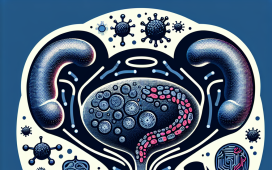Heart disease is the leading cause of death for both men and women in the United States. It is a complex disease that is influenced by a variety of factors, including genetics, lifestyle, and environment.
Traditionally, heart disease has been treated with a one-size-fits-all approach. However, this approach is not always effective. People with different genetic makeups and risk factors may respond differently to treatment.
Precision cardiology is a new approach to heart disease care that takes into account the individual patient’s unique needs. Precision cardiology uses genetic testing, imaging, and other technologies to create a personalized treatment plan for each patient.
There are a number of benefits to precision cardiology. First, it can help to improve the effectiveness of treatment. By tailoring treatment to the individual patient, precision cardiology can help to reduce the risk of complications and improve outcomes. Second, precision cardiology can help to prevent heart disease. By identifying patients who are at high risk for heart disease, precision cardiology can help to prevent the disease from developing in the first place. Third, precision cardiology can help to improve quality of life for patients with heart disease. By providing personalized treatment, precision cardiology can help patients to manage their condition and live a full and active life.
Precision cardiology is a promising new approach to heart disease care. It has the potential to improve the effectiveness of treatment, prevent heart disease, and improve quality of life for patients with heart disease.
Here are some of the technologies that are being used in precision cardiology:
- Genetic testing: Genetic testing can be used to identify patients who are at risk for heart disease. This information can be used to develop a personalized treatment plan.
- Imaging: Imaging technologies, such as CT scans and MRIs, can be used to visualize the heart and identify any abnormalities. This information can be used to diagnose heart disease and to plan treatment.
- Biomarkers: Biomarkers are molecules that can be measured in the blood or urine. They can be used to track the progression of heart disease and to assess the effectiveness of treatment.
- Machine learning: Machine learning is a type of artificial intelligence that can be used to analyze data and identify patterns. It is being used to develop new diagnostic tools and to improve the accuracy of treatment decisions.
Precision cardiology is still in its early stages, but it is rapidly evolving. As the field continues to develop, we can expect to see even more personalized and effective treatments for heart disease.








